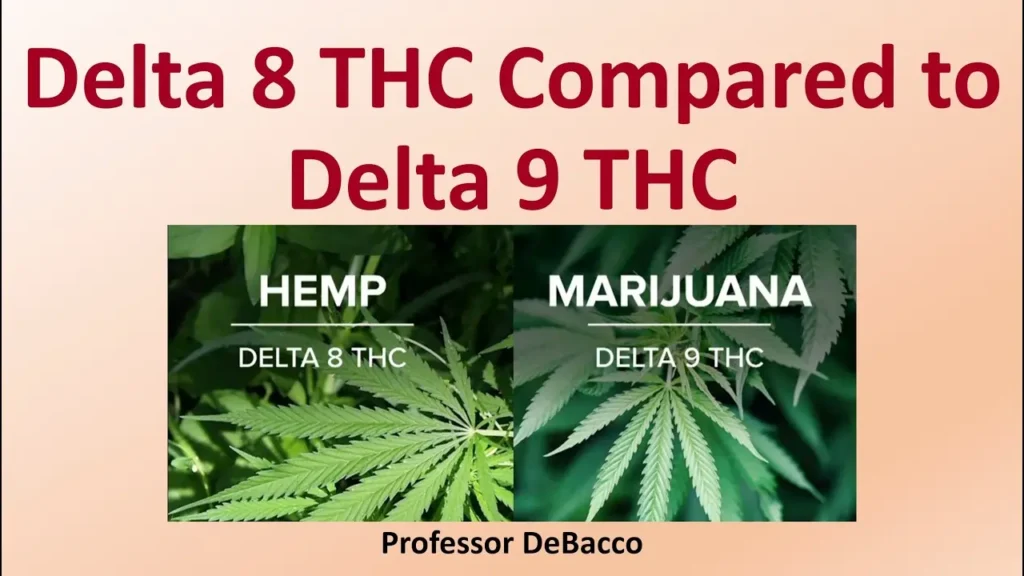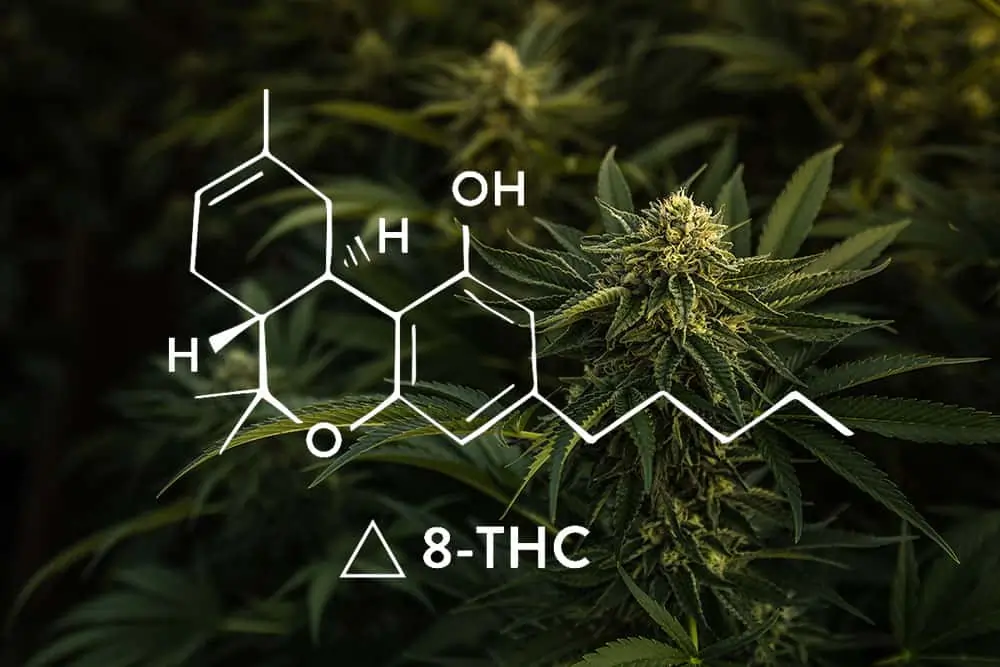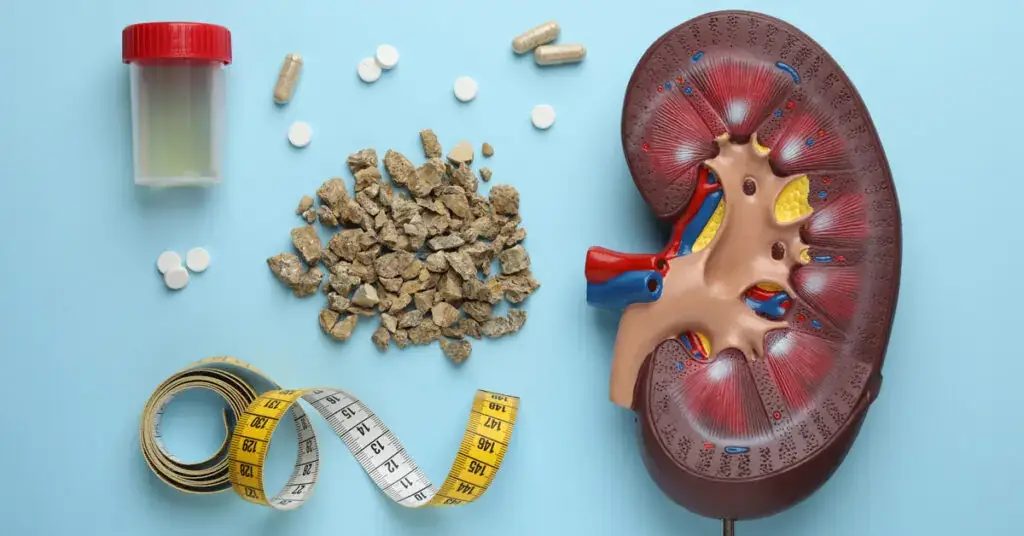Delta 8 THC has become increasingly popular due to its milder psychoactive effects compared to Delta 9 THC. However, as its use becomes more widespread, understanding Delta 8 withdrawal symptoms is essential for those who decide to stop using it. Whether you’re a regular user or have been using Delta 8 for therapeutic purposes, knowing what to expect and how to manage Delta 8 withdrawal symptoms can make the process much easier.
What Is Delta 8 THC?
Delta 8 THC, or Delta-8-tetrahydrocannabinol, is a naturally occurring cannabinoid found in the cannabis plant. Unlike its more potent counterpart, Delta 9 THC, Delta 8 provides a milder high, making it an attractive option for those seeking a less intense experience. Delta 8 is typically derived from hemp, which makes it legal in many areas, though regulations can vary by region.
Read More Info on our site.

Understanding Delta 8 Withdrawal
What Does Withdrawal Mean?
Withdrawal refers to the physical and psychological symptoms that occur when a person reduces or stops the intake of a substance to which they have developed a dependence. Delta 8 withdrawal symptoms can manifest as the body adjusts to the absence of the compound.
Causes of Withdrawal from Delta 8
Delta 8 withdrawal occurs because the body becomes accustomed to the presence of the substance. When the intake of Delta 8 is reduced or halted, the body struggles to maintain its normal functioning without the compound, leading to withdrawal symptoms.
Delta 8 Withdrawal Symptoms
Physical Symptoms
Delta 8 withdrawal symptoms can include a variety of physical discomforts such as headaches, fatigue, nausea, and sweating. These symptoms arise as the body detoxifies and attempts to regain balance without the influence of Delta 8.

Psychological Symptoms
Psychological Delta 8 withdrawal symptoms are also common and can include anxiety, irritability, depression, and mood swings. The psychoactive properties of Delta 8 mean that its withdrawal can significantly affect mental health, making it crucial to be prepared for these challenges.
Comparison with Delta-9 THC Withdrawal
While Delta 8 withdrawal symptoms can be similar to those experienced with Delta 9 THC, they are generally milder. However, the specific symptoms and their intensity can vary from person to person.
Delta-8 Withdrawal Timeline
Onset of Symptoms
The onset of Delta 8 withdrawal symptoms can occur within a few hours to a couple of days after the last use. This period varies depending on the individual’s usage patterns and metabolism.
Duration of Symptoms
The duration of Delta-8 withdrawal symptoms typically lasts from a few days to a couple of weeks. Acute symptoms often peak within the first few days and gradually diminish over time.
Factors Influencing the Timeline
Several factors can influence the timeline of Delta-8 withdrawal symptoms, including the duration and frequency of use, the individual’s overall health, and their metabolic rate. Each person’s experience with withdrawal will be unique.

Managing Delta 8 Withdrawals
Importance of Support Systems
Having a strong support system is crucial when dealing with Delta 8 withdrawal symptoms. Friends, family, and support groups can provide the emotional and psychological support needed to get through this challenging time.
Medical Interventions
In some cases, medical intervention may be necessary to manage Delta-8 withdrawal symptoms. Consulting with a healthcare professional can help determine the best course of action, which might include medications to alleviate specific symptoms.
Home Remedies
There are several home remedies that can help manage Delta 8-withdrawal symptoms. Staying hydrated, maintaining a healthy diet, and getting adequate rest can all contribute to a smoother recovery process.
Tips for Smooth Recovery
Maintaining a Healthy Diet
Eating a balanced diet rich in vitamins and nutrients can support the body’s recovery process. Foods high in antioxidants, such as fruits and vegetables, can help detoxify the body and reduce Delta 8 withdrawal symptoms.
Staying Hydrated
Staying hydrated is essential for flushing out toxins and maintaining overall health. Drinking plenty of water can help alleviate some physical Delta 8 withdrawal symptoms, such as headaches and fatigue.
Exercise and Physical Activity
Engaging in regular physical activity can boost mood and energy levels, helping to combat some of the psychological Delta-8 withdrawal symptoms. Exercise releases endorphins, which can improve overall well-being.
What Is Delta 8 THC?
Delta 8 THC, or Delta-8-tetrahydrocannabinol, is a naturally occurring cannabinoid found in the cannabis plant. Unlike its more potent counterpart, Delta 9 THC, Delta 8 provides a milder high, making it an attractive option for those seeking a less intense experience. Delta 8 is typically derived from hemp, which makes it legal in many areas, though regulations can vary by region.
Delta 8 Withdrawal
Delta 8 withdrawal refers to the physical and psychological symptoms that occur when a person reduces or stops using Delta 8 THC. These symptoms arise because the body has become accustomed to the presence of Delta 8 and struggles to maintain balance without it. Understanding Delta-8 withdrawal symptoms is crucial for anyone planning to reduce or cease their use of this compound.
Delta 8 Withdrawal Symptoms
Delta 8 withdrawal symptoms can vary widely from person to person but commonly include both physical and psychological effects. Physical symptoms may include headaches, fatigue, nausea, and sweating. Psychological symptoms often involve anxiety, irritability, depression, and mood swings. These symptoms occur as the body and mind adjust to functioning without Delta 8.
Delta-8 Withdrawal
Delta-8 withdrawal is similar to Delta 8 withdrawal, highlighting the process and symptoms that occur when one stops using Delta 8 THC. The terms Delta-8 withdrawal and Delta-8 withdrawal are often used interchangeably, but they both describe the same experience of adjusting to the absence of Delta 8 in the body.
Delta-8 Withdrawal Symptoms
Delta-8 withdrawal symptoms encompass the range of physical and psychological effects experienced when ceasing the use of Delta 8 THC. These symptoms are a direct result of the body’s dependence on the substance and can include headaches, nausea, anxiety, and mood swings. Understanding Delta-8 withdrawal symptoms is key to managing and overcoming them effectively.
Delta 8 Withdrawal Timeline
The Delta 8 withdrawal timeline can vary depending on several factors, including the duration and frequency of use, the individual’s overall health, and their metabolism. Generally, withdrawal symptoms can begin within a few hours to a couple of days after the last use, peak within the first few days, and gradually subside over a period of days to weeks. Knowing the Delta-8 withdrawal timeline helps users prepare for the process and manage symptoms effectively.
Delta 8 Withdrawals
Delta 8 withdrawals refer to the collective symptoms experienced during the withdrawal period from Delta 8 THC. These symptoms can range from mild to severe and may affect both physical and mental health. Understanding Delta-8 withdrawals is essential for preparing to quit or reduce usage and ensuring a smooth recovery process.
Withdrawal from Delta 8
Withdrawal from Delta 8 involves the experience of Delta-8 withdrawal symptoms after stopping or significantly reducing the use of Delta 8 THC. This process can be challenging, but with the right strategies and support, individuals can manage their symptoms and achieve a smooth recovery.
What Does Withdrawal Mean?
Withdrawal refers to the physical and psychological symptoms that occur when a person reduces or stops using a substance to which they have developed a dependence. In the context of Delta 8, withdrawal means experiencing Delta 8 withdrawal symptoms as the body and mind adjust to the absence of the compound.

What Are The Symptoms Of Cannabis Withdrawal?
Cannabis withdrawal symptoms can include irritability, anxiety, depression, sleep disturbances, and physical discomforts such as headaches, nausea, and decreased appetite. Delta-8 withdrawal symptoms are a subset of cannabis withdrawal symptoms, as Delta 8 is a cannabinoid found in cannabis plants. Understanding these symptoms can help individuals prepare for and manage their withdrawal experience.
Can You Withdraw from Delta 8?
Yes, you can withdraw from Delta 8. Like other cannabinoids, regular use of Delta 8 can lead to dependence, and stopping use can result in Delta 8 withdrawal symptoms. These symptoms are a natural response as the body adjusts to functioning without the presence of Delta 8.
How Long Does Delta 8 Withdrawal Last?
The duration of Delta-8 withdrawal symptoms typically lasts from a few days to a couple of weeks. Acute symptoms often peak within the first few days and gradually diminish over time. However, the exact duration can vary based on individual factors such as usage patterns and overall health.
Can You Have Withdrawals from Delta 8?
Yes, you can have withdrawals from Delta 8. When regular use of Delta 8 is stopped or reduced, the body may experience a range of withdrawal symptoms as it adapts to the absence of the compound. These symptoms can affect both physical and mental health.
How Long Do Delta 8 Withdrawals Last?
Withdrawals from delta-8 last from a few days to a few weeks. The frequency and severity of symptoms can vary corresponding on the individual and their usage history. Understanding the standard timeline for Delta-8 withdrawals might help people manage and manage the procedures.
Can You Get Withdrawals from Delta 8?
Yes, you can get withdrawals from Delta 8. When a person stops using Delta 8 THC after regular use, the body can experience withdrawal symptoms as it adjusts to the absence of the substance. These symptoms can range from mild to severe and may impact both physical and psychological well-being.
Psychological Strategies for Coping
Mindfulness and Meditation
Practicing mindfulness and meditation can be beneficial in managing Delta-8 withdrawal symptoms. These techniques help reduce anxiety and promote a sense of calm and control.
Cognitive Behavioral Techniques
Cognitive Behavioral Therapy (CBT) can be an effective strategy for dealing with the psychological aspects of Delta-8 withdrawal. CBT enables people to identify and change problematic thought patterns and behaviors.
Seeking Professional Help
Sometimes, seeking professional help is necessary to cope with Delta 8-withdrawal symptoms. Therapists and counselors can provide the support and tools needed to navigate this challenging time.
Preventing Delta-8 Withdrawal
Gradual Reduction vs. Cold Turkey
To prevent severe Delta-8 withdrawal symptoms, it is often recommended to gradually reduce usage rather than stopping abruptly. This tapering approach can help the body adjust more smoothly to the absence of Delta 8.
Setting Up a Support Network
Having a support network in place before beginning the withdrawal process can make a significant difference. Friends, family, and support groups can offer encouragement and assistance.
Monitoring and Managing Usage
Being mindful of Delta 8 usage and keeping track of consumption can help prevent dependence and mitigate the risk of severe Delta-8 withdrawal symptoms. Regularly assessing and adjusting usage can be an effective strategy.
Personal Stories and Experiences
Testimonials from Users
Hearing from others who have successfully navigated Delta 8 withdrawal symptoms can be inspiring and informative. Personal stories provide real-life examples of what to expect and how to manage the process.
Lessons Learned from Recovery Journeys
Learning from the experiences of others can offer valuable insights and tips for dealing with Delta 8-withdrawal symptoms. Understanding the challenges and triumphs of others can provide guidance and motivation.
Frequently Asked Questions (FAQs)
Can you withdraw from Delta 8?
Yes, it is actually possible to withdraw in Delta8. Like other cannabinoids, regular use can lead to dependence, and stopping use can result in withdrawal symptoms.
How long does Delta 8 withdrawal last?
Delta-8 withdrawal symptoms typically recent from a some days to a some of weeks. The duration can vary based on individual factors such as usage patterns and overall health.
Can you have withdrawals from Delta 8?
Yes, withdrawals from Delta 8 can occur. Both physical and psychological symptoms may be experienced as the body adjusts to the absence of Delta 8.
How long do Delta-8 withdrawals last?
Delta-8 withdrawals usually last between a few days to a few weeks. The intensity and duration of symptoms can vary depending on the individual and their usage history.
Can you get withdrawals from Delta 8?
Yes, you can get withdrawals from Delta 8. When regular use is stopped or reduced, the body may experience a range of withdrawal symptoms as it adapts.
Conclusion
Understanding Delta 8 withdrawal symptoms and how to manage them is essential for anyone considering reducing or stopping their use of Delta 8 THC. By being informed and prepared, you can navigate this challenging process more smoothly and support your overall well-being. Remember, the key to a successful recovery is a combination of physical care, psychological support, and professional guidance if needed.
Table of Contents
-
What Supplements Cause Kidney Stones: A Complete Guide
Introduction Kidney stones are a common but What Supplements Cause Kidney Stones? that has the potential to greatly affect your quality of life. Many people take supplements to boost their health, but did you know that some of these can actually increase your risk of developing kidney stones? Understanding which supplements cause kidney stones is…
-
Relieve Kidney Stone Bladder Pain: Tips & Remedies
Kidney stone bladder pain can be a daunting experience, often coming unexpectedly and with intense discomfort. Understanding how to manage and alleviate this pain is crucial for anyone suffering from kidney stones. Let’s dive into comprehensive tips and remedies to help you relieve the pain effectively. What is Kidney Stone Bladder Pain? Kidney stone bladder…
-
Unveiling the Reality: Worst alcohol for kidney stones
Are you someone has experienced the excruciating pain of kidney stones? If so, you understand the importance of making wise choices when it comes your diet and lifestyle. But what about alcohol consumption? Can certain alcoholic beverages worsen your condition? In this eye-opening blog post, we will delve into the shocking truth about the worst…





1 thought on “Delta 8 Withdrawal Symptoms Survival and Smooth Recovery Tips”